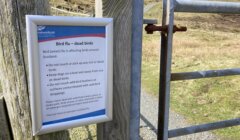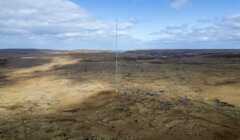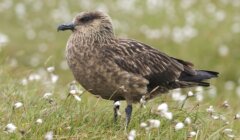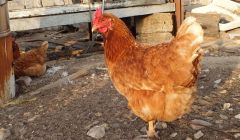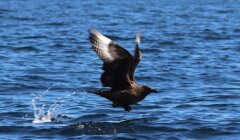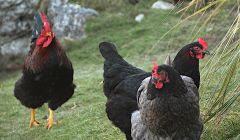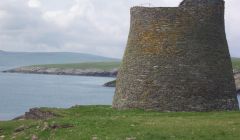Nature / Four dead ducks test positive for avian flu
A number of bonxies have also been collected for testing
FOUR dead eider ducks collected in Shetland last month have tested positive for avian flu, the Scottish Government has confirmed.
A government spokesperson told Shetland News that they are the first confirmed cases in wild birds in the isles this season.
All four ducks were collected on 20 April. The cases of HPAI H5N1 were identified through the UK government’s dead wild bird surveillance scheme, which examines public reports and warden patrols.
Meanwhile dead bonxies with suspected avian flu in Shetland have recently been collected and are due to be sent off for testing.
The birds affected are bonxies and they were found in Noness in the south mainland and also in Fair Isle.
Acting Fair Isle Bird Observatory warden Alex Penn said there have been around 15 to 20 dead bonxies spotted on the island in the last couple of weeks – “all presumed to be avian flu”.
Shetland Islands Council’s environmental health team leader David Robertson said it may take at least two weeks for results of tests of collected birds to come through. He believes that six birds have been collected.
Videos of birds in the South Mainland and Fair Isle were posted on social media in recent days, and the at times distressing footage showed both dead and suffering bonxies.
Confirmed cases of avian flu were reported in Fair Isle last year following tests on dead bonxies.
Other dead birds have been spotted around Shetland recently, but the cause has not been determined.
It coincidentally comes as rules on keeping poultry and other captive birds housed are relaxed.
The avian flu rules, put in place to stop the spread of bird flu, were loosened on Monday.
However, only the housing measures were lifted, meaning all bird keepers must remain diligent in taking effective and precautionary biosecurity measures such as cleansing and disinfecting equipment, and limiting access to their sites.
Become a member of Shetland News
Meanwhile people are advised not to touch any dead or sick birds.
Advice on the UK Government’s DEFRA’s website states: “The UK Health Security Agency (UKHSA) has said that avian influenza is primarily a disease of birds and the risk to the general public’s health is very low.
“However, do not touch or pick up any dead or visibly sick birds that you find. In Great Britain, if you find dead wild waterfowl (swans, geese or ducks) or other dead wild birds, such as gulls or birds of prey, you should report them to the Defra helpline (03459 33 55 77).
“We then collect some of these birds and test them to help us understand how the disease is distributed geographically and in different types of bird, not all birds will be collected.
“Wild birds are susceptible to a range of diseases and injuries and not all dead birds will have been infected with avian influenza.”
Become a member of Shetland News
Shetland News is asking its many readers to consider paying for membership to get additional features and services: -
- Remove non-local ads;
- Bookmark posts to read later;
- Exclusive curated weekly newsletter;
- Hide membership messages;
- Comments open for discussion.
If you appreciate what we do and feel strongly about impartial local journalism, then please become a member of Shetland News by either making a single payment, or setting up a monthly, quarterly or yearly subscription.



































